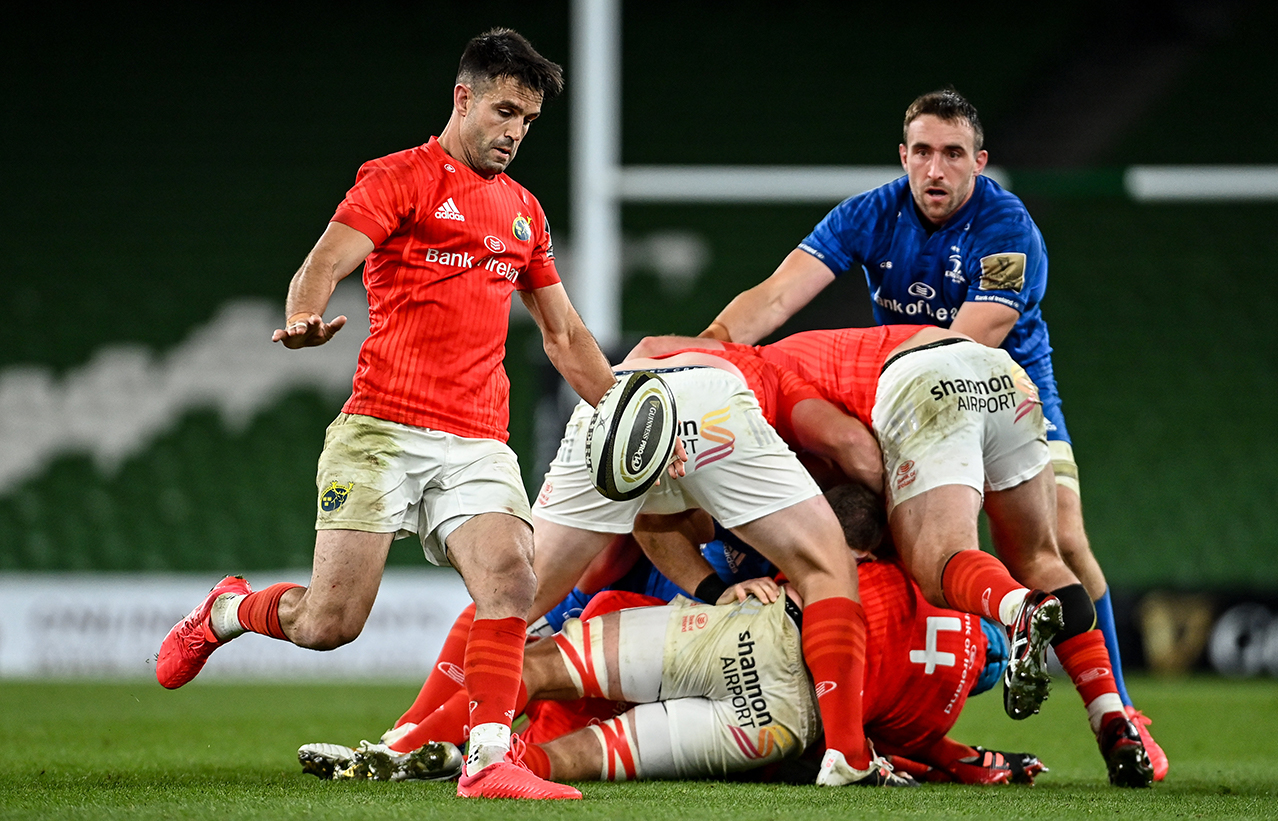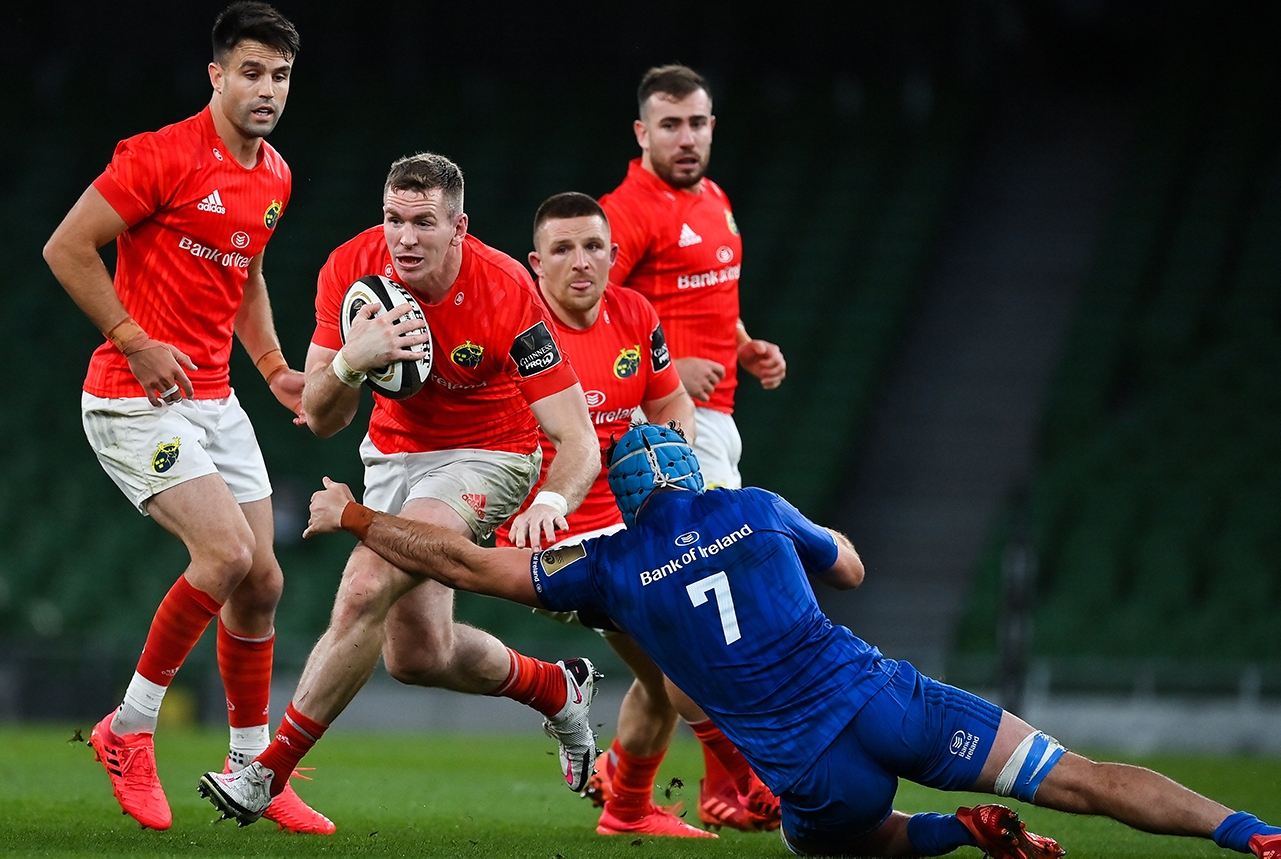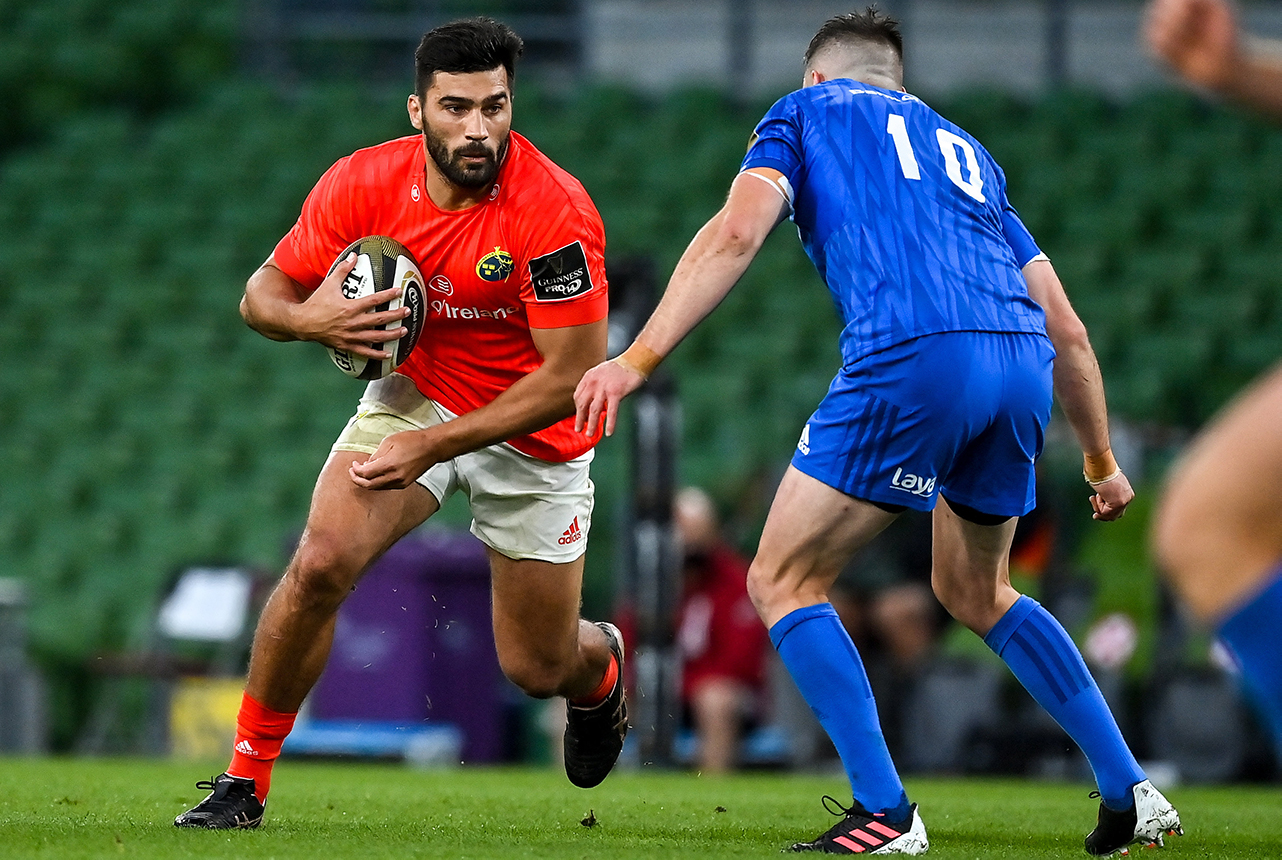Former Munster man Alan Quinlan criticised a lack of on-field leaders in Munster while breaking down the weekend rugby on Monday’s OTB AM.
Quinlan criticised the overuse of the box-kick, particularly as it seemed to be much less effective on Friday as it was two weeks prior.
“Too often [the play] was slow, they were making box-kicks that were inaccurate,” he said.
“People have asked me this over the weekend: ‘who’s telling them to do this?’
“Obviously they’ve a game plan, and I suppose for these three or four weeks they were hoping to get themselves into the final.
"They weren’t going to drastically try and change everything.
“It is a bit like the Republic of Ireland, you change too much too quickly, and you come unstuck.
“They’re back to their old ways of trying to pressurise the opposition and play a kicking game.”
Quinlan acknowledged the importance of a kicking game in the modern era, but questioned its persistence when Munster were trailing by 10 points.
“A kicking game is absolutely vital in the modern game,” he said.
“If you play out of your own half too much there’s too much energy being exerted, sometimes you’re going nowhere, and you make a mistake and you cop up a penalty.
“So, every team kicks the ball a lot more now in the modern game.
“If Munster are ten points up, they can kick the ball dead every single time and no Munster fan would complain about it.
“Afterwards they’d say ‘that’s brilliant’ because Munster just frustrated the life out of the opposition.
“But you’re kicking the ball away when you’re ten points down.”
He suggested that the players on the field should be able to abandon the game plan if they see that it is not working.
“On the field leadership is an issue, making those kinds of decisions on the field needs to be a lot better,” Quinlan said.
“You can have a template out there, and I’ve always said this as a player and I had it as a player myself, you’ve got to adapt to the conditions and the scoreboard.
“The players have to take ownership of that and just play.
“Of course, if Munster score and they’re the ones ahead, you can kick the ball all day long.”
 Conor Murray of Munster during the Guinness PRO14 Semi-Final match between Leinster and Munster at the Aviva Stadium in Dublin. Photo by Ramsey Cardy/Sportsfile
Conor Murray of Munster during the Guinness PRO14 Semi-Final match between Leinster and Munster at the Aviva Stadium in Dublin. Photo by Ramsey Cardy/SportsfileQuinlan lamented the lack of execution of the game plan that worked so well for Munster in the first match post-lockdown.
“Their kick chase wasn’t good enough, their accuracy wasn’t good enough, and they’ve got to change that on the field, particularly when they’re ten points down,” he said.
“You’ve got to say, ‘right, let’s do something different, let’s just throw caution to the wind, let’s try and offload the ball, let’s just throw the ball wide.’
“They don’t seem to be able to make those kinds of decisions on the field, so leadership and vision of space is a problem.”
He suggested that, although the coaches are responsible for the game plan for each match, the playmakers on the field should be responsible for changing it if it is not working.
“The control from the nine and 10, JJ Hanrahan and Conor Murray wasn’t great,” Quinlan said.
“They’re probably your big, key decision-makers on the field who make those decisions.
“Ten points down, Conor Murray kicked the ball back into a ruck at one stage where he slowed the whole game down to box kick again.”
There was a noticeable difference between the way that Munster went about adapting to the game in their first match against Leinster.
 Chris Farrell of Munster is tackled by Will Connors of Leinster during the Guinness PRO14 Semi-Final match between Leinster and Munster at the Aviva Stadium in Dublin. Photo by Brendan Moran/Sportsfile
Chris Farrell of Munster is tackled by Will Connors of Leinster during the Guinness PRO14 Semi-Final match between Leinster and Munster at the Aviva Stadium in Dublin. Photo by Brendan Moran/Sportsfile“They do have an attacking plan, and you saw it in the first game that they played, I thought their approach in that first Leinster game was brilliant,” Quinlan said.
“The first try that Andrew Conway scored in that match, Munster were picking and jamming at the line.
“Normally, they’d just keep doing that until they get the score or else they’d turn it over or knock it on, but they identified the opportunity to move it quickly and look for the space.
“So, I think their approach and the ambition to change is definitely there.”
PODCAST | 🏉@AlanQuinlan1 joined #OTBAM to discuss the weekend's rugby.
- Munster vs Leinster review
- Madigan's magic
- Owen Farrell's tackle techniquehttps://t.co/1HKQfK5JGh— Off The Ball (@offtheball) September 7, 2020
Munster coaches aren't blameless
However, the coaching staff are not completely blameless for the lack of adaption, according to Quinlan.
He suggested that Munster’s use of slow ball and an over-dependence on box-kicking is a waste of the talent they have in the backline.
“Of course, Johan van Graan has got to take ownership of that, when you lose these games and you lose them in that manner, he’s got to take control of that and take responsibility,” Quinlan said.
“So has Stephen Larkham; where was Stephen Larkham’s influence in that?
“If I was the backs coach and I had [Damian] De Allende, [Chris] Farrell, [Andrew] Conway and [Keith] Earls, I’d be trying to put pressure on the forwards coach or the forwards pack to deliver me good ball.
 Damian de Allende of Munster in action against Jonathan Sexton of Leinster during the Guinness PRO14 Semi-Final match between Leinster and Munster at the Aviva Stadium in Dublin. Photo by Brendan Moran/Sportsfile
Damian de Allende of Munster in action against Jonathan Sexton of Leinster during the Guinness PRO14 Semi-Final match between Leinster and Munster at the Aviva Stadium in Dublin. Photo by Brendan Moran/Sportsfile“I want my backline to get the ball in the hands, [and] get some space on it.
“Too often, particularly the other night, the ball was coming out way too slow. No matter who you have in the centres, you’ve no time and space.
“You’ve got to get the ball in De Allende’s hands earlier, you’ve got to give him [and Chris Farrell] a little bit of space.
“They showed that in the first game, they showed that they could do it.”
Ultimately, Quinlan questioned whether or not the Munster players were good enough to beat Leinster and earn a spot in the final.
“This is probably harder to watch because, the Munster players, are they good enough? Some of them, are they good enough?” Quinlan said.
“That’s the reality, you’ve got to ask that question and they’ve got to ask it themselves.”
Munster will now have to prepare for the start of the new season next month.







